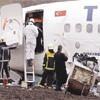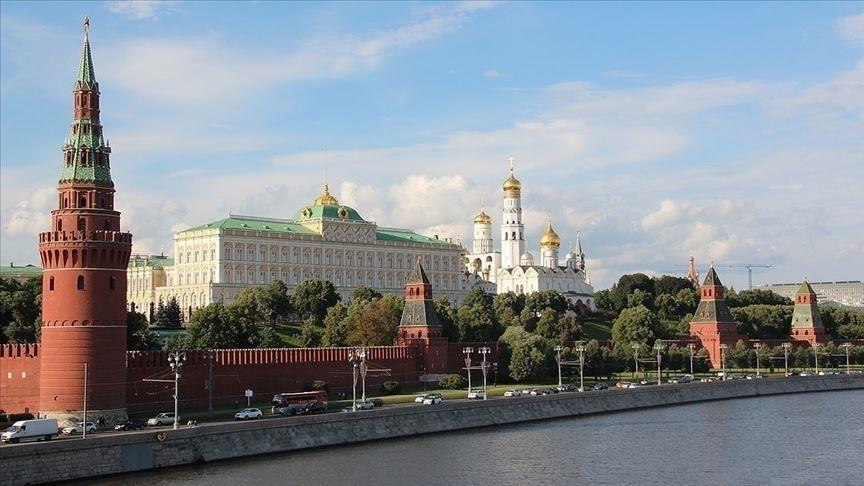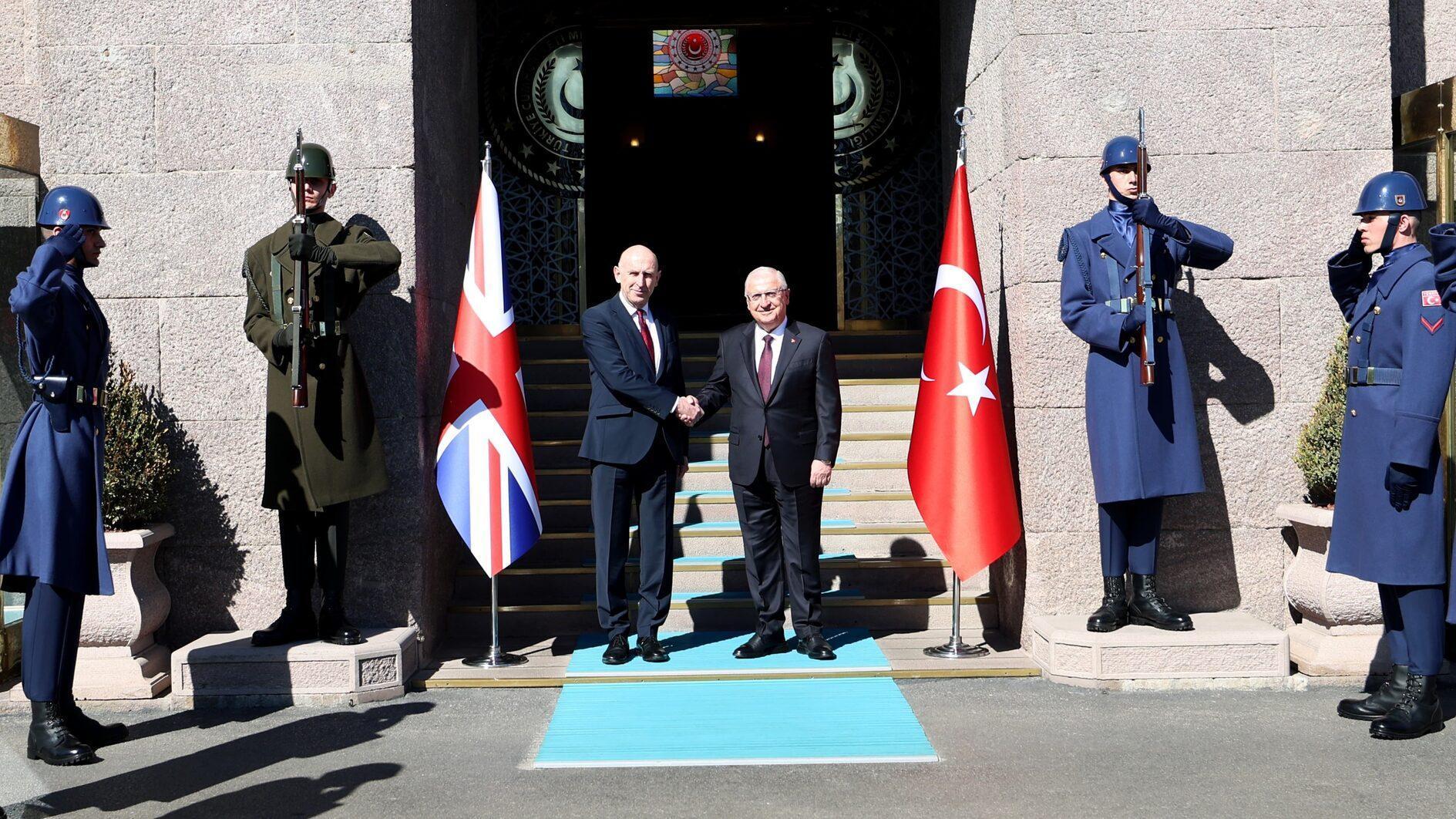Engine target in crash probe
Hurriyet Daily News with wires

refid:11102745 ilişkili resim dosyası
Flight TK1951 from Istanbul crashed about 1.5 kilometers short of the runway at Amsterdam's Schiphol Airport on Wednesday morning, smashing into three pieces and strewing luggage and debris across a field. It was carrying a total of 135 people, including passengers and crew.Chief investigator Pieter van Vollenhoven said the Boeing 737-800 had fallen almost directly from the sky.
He indicated that the plane's engines may have stopped. A possible cause has not yet been established. Spokeswoman Sandra Groenendal of the Dutch Safety Authority confirmed van Vollenhoven’s remarks, adding that engine failure was still only "one of the possible scenarios" for the crash, Dutch state television NOS and reported by the Associated Press news agency.
An analysis of the plane's flight-data recorders is being undertaken in Paris. This could be completed as early as Friday, van Vollenhoven said, but his agency would probably not make a preliminary finding until next week. "We hope to have a firmer grip as soon as possible," he said, adding that the information retrieved from the recorders was of high quality. Survivors say engine noise seemed to stop before the plane shuddered and then simply fell out of the sky, tail-first. Witnesses on the ground said the plane dropped from a height of about 90 meters.
Another possible reason for the crash may be "wake turbulence," which forms behind an aircraft as it passes through the air, a Turkey’s Airline Pilot Association spokespoerson said Friday in a press conference. "A large Boeing landed at Schipol just before the THY plane attempted to land. The distance between two planes at landing should be around eight kilometers and if it was shorter, then that means the airport is guilty. We will ask the Schiphol Airport what was the situation," said the spokesperson.
Although it could be any reason other than a broken engine, "the early announcement that said the engine may be broken makes you think that those who said it have bad intentions," said the spokesperson, reported private NTV news channel.
Two Boeing employees dead
Haarlemmermeer Mayor Theo Weterings said five Turks and four Americans were killed in the crash, but the names of the victims would not be released until the bodies had been formally identified. Boeing Co. said late Thursday that two of its employees were killed and a third injured in the crash. THY announced that it will pay 50,000 euros to the relatives of those who died and 5,000 to 10,000 to the passengers who were injured and received hospital treatment, reported NTV.
The leader of the Turkish Civil Aviation Trade Union, Atilay Ayçin, said in a press statement yesterday that one flight attendant, Figen Eren, cut her leg while another, Perihan Özden, suffered various fractures and flight attendant Yasemin Vural was slightly injured. Cabin crewmember Ulvi Murat Keskin died in the crush said THY according to NTV. The three pilots died in the crash, the first victims to be identified.
Investigators now say 135 passengers and crewmembers were on the flight, not 134 as previously believed, which was one reason it took so long to account for the dead. At the crash site Thursday, investigators took detailed photos of the wreckage, trying to piece together why the plane lost speed and crashed.
One survivor, Henk Heijloo, said the last message he heard from the captain was for the flight crew to take their seats. He said it took him a little while to realize the landing had gone wrong. "We were coming in at an odd angle, and I felt the pilot give the plane more gas," he said. He thought the pilot might have been trying to abort the landing, because the plane’s nose came up. Then he realized the landing was too rough to be normal and a moment later he felt an enormous crash. He walked away apparently uninjured, but his body began aching Thursday, he said.
A retired pilot who listened to a radio exchange between air-traffic controllers and the aircraft shortly before the crash said he didn't hear anything unusual. "Everything appeared normal," said Joe Mazzone, a former Delta Air Lines captain. "They were given clearance to descend to 7,000 feet."
The recording was posted by the Web site LiveATC.net, which captures air-traffic exchanges by monitoring scanners near airports. "Turkish 1951 descending from level 7-0," one of the pilots said as they neared the airport, referring to the plane's altitude of 7,000 feet. The controller cleared the plane to descend to an altitude of 4,000 feet, where it would intercept an electronic beam that would guide the plane to the runway. The controller then read out the proper radio frequency for requesting clearance to land. "Turkish 1951 contact the tower 11827, bye bye," he said. "Thank you, sir," the pilot replied, with no indication of trouble in his voice.
Trade union reaction
The Turkish trade union leader Ayçin meanwhile demanded the resignation of THY managers. "This is a work-related accident, work-related murder," he said, adding that the attitude of the company’s administration immediately after the crash showed that accidents did not teach anything to authorities in Turkey. "It is a wrong mentality [to manage the company by] only buying new planes, opening new lines and increasing the number of flights," he said.
Passerby sees pIlot’s last moments
The pilot of the Turkish Airlines plane that crashed in Amsterdam on Wednesday was still alive after the accident, but trapped inside the cockpit, a volunteer who arrived at the scene said Friday.
"I saw the hand of the pilot in the front part of the plane. He was in the throes of death," Ismail Akyuz told the Doğan news agency. "When I arrived, he was still alive, but couldn't move. I heard him breathing noisily."
Akyuz, a Turk living in Amsterdam, and his wife were traveling along the highway near the airport when the accident happened. "We took notice of the plane after we realized it was Turkish," Akyuz said. When the Boeing 737-800 jet operated by Turkish Airlines, or THY, crash-landed en route from Istanbul, nine people were killed and 84 injured. The plane was carrying 135 people, including seven crewmembers.
The three pilots, who were hailed as heroes for preventing a major disaster, lost their lives in the crash.
"When we first arrived at the scene, we saw people lying on the ground injured. Some of them had broken legs," Akyuz said. "I entered the fuselage through one of the open doors and walked to the back part of the plane. There were a couple of people there and we helped them get out." He said the passengers did not have their seatbelts fastened and there was no smell of smoke or gas. "It took around 20 minutes before the rescue teams arrived on the scene because it’s only a secondary road that leads there."
















